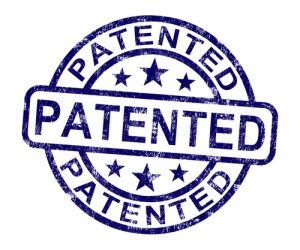When I talk to people about the MSL program and mention how our robust curriculum in intellectual property can prepare them for careers at the intersection of law, business, and technology they often say something like this: “Oh yeah, like patent attorneys?” This is my opening. I get to tell them that there are actually a wide range of careers in IP, and patent attorney is just one – and it’s the only one to require a JD. All the other careers in IP can be filled by professionals who did not train to be lawyers, and this is where the MSL’s business-centered legal training comes in. Our graduates have a lot of opportunities open to them in IP. In this post I’m going to talk about one set of IP professionals: patent practitioners.
There are several kinds of patent practitioners: patent engineer, patent agent, patent attorney, and patent examiner. Patent examiners work at the United States Patent and Trademark Office (USPTO) reviewing patent applications and issuing actions, which indicate any problems within the application. All other patent practitioners can assist with putting together a patent application, reviewing and analyzing USPTO actions and making recommendations on how to respond to an office action in order to get the patent application back on track. They may also conduct research and talk with inventors about the science or technology behind the invention to determine what exactly is new and unique about it. This is an essential task because a patent cannot be issued without a compelling claim regarding the innovation at the heart of the application.
Henry Yu, MSL ’16 is a patent engineer at Sinorca and he says that what he loves most about his work is that it “stimulates [him] to keep thinking.” In addition to drawing from his engineering background and allowing him to learn about new technologies every day, being a patent engineer provides him the opportunity to guide clients down the right path when they face bumps in the road on their way to obtaining a patent. Some people, Henry says, “don’t know how to reply” to an office action and might focus on an argument that won’t work while another, better argument is there to be made. That’s where he comes in. “I am happy I can provide my professional knowledge to help those applicants, who might not fully understand” the rules of the game.
When Henry was an MSL student he took the Patent Preparation and Prosecution Workshop led by Nancy Gamburd, who in addition to teaching in the MSL program heads her own IP and licensing firm, the Gamburd Law Group, LLC. Henry says this class was very helpful to him because the work they covered is “what [he’s] doing right now every day.” The practical, hands-on pedagogical approach used in MSL classes like this one was a highlight of the program for him because “learning by practicing is the best way to learn.”
Unlike patent engineers, patent agents and patent attorneys have taken and passed the patent bar exam, which enables them to represent a client before the USPTO. You must meet certain eligibility requirements before taking the patent bar exam and most STEM degrees will qualify you for it. This means almost every MSL student is eligible for the patent bar because MSL applicants must have a STEM background in order to submit an admissions application.
Anyone who is interested in becoming a patent agent often has questions about the patent bar exam. Each year Northwestern Law hosts an information session relating to being and becoming a patent agent. This year the session was led by John White of the Practising Law Institute, a nonprofit organization that provides patent bar prep courses. John discussed the patent bar exam in detail – the format and structure of the exam, how it is graded, how and when to register, how to study for it, and more. He also provided an overview of what daily work life is like for a patent agent and where patent agents tend to work. Almost 20 people attended and virtually all of them were MSL students.
While many patent agents have gone on to become patent attorneys, that is not the only career path available to them. Amy Garber, MSL ’15, worked as a patent agent for 10 years prior to coming to the MSL program. As a patent agent she developed an “overarching enthusiasm” for “macro-scale projects focused on the business side of intellectual property.” Her professional goals evolved toward “guiding patent (and other IP) asset decisions that directly support business strategy goals.” She explored these interests in the MSL program by taking IP Valuation, IP Strategy & Management, and IP Licensing, among other courses. Upon graduation she co-founded a startup called Hazel Technologies, whose mission is to extend the shelf life of produce. She serves as the Chief Intellectual Property Officer.
We’ll feature Amy in an upcoming blog post on startups and entrepreneurship, so check back soon!
Susan Dennehy
Administrative Director of the MSL Program






